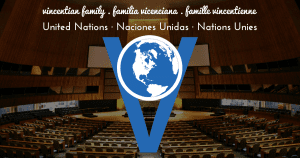Faith-based organizations individually and as coalitions have played significant roles in environmental protection and care of the earth and the UN Environment has taken into consideration the impact of environmental advocacy and steps taken by faith-based leaders have on their followers. Eighty (80) percent of the world’s 7.5 billion population associate themselves with a faith and the UN Environment wants to leverage the power of values based environmental groups. Global organizations are acknowledging more readily these days, that they need to work with faith-based organizations to integrate moral/ethical values and individual responsibility into social, economic and environmental issues.

In order to involve faith-based organizations and faith leaders worldwide more holistically, the UN Environment began the FAITH FOR EARTH INITIATIVE in August 2017 and appointed Iyad Abumoghli as Lead Advisor for Engaging with Faith-Based Organizations at UN Environment based in Nairobi, Kenya. This is an attempt to realize SDG 17, which calls for partnerships with all stakeholders, including faith-based organizations for the implementation of the 2030 Agenda. And it is expressed by the Lead Advisor in this manner, “The essence of the work of UN Environment is to integrate faith perceptions into the initiatives and strategies of whatever we do in the organization – whether ecosystems, environmental laws or when tackling diverse environmental issues.”
Goals of Faith for Earth:
- To inspire and empower faith organizations and their leaders to actively promote the relationship between environment and faith
- To work with faith organizations on their investments, banking and assets to finance sustainable development. It is estimated that investment by religious institutions around the world amount to $3 trillion and they are the third largest group of global investors. And greening their investments will make an enormous difference. Many groups have divested from oil and gas investments or industries that generate carbon. UN Environment is trying to establish norms for faith-based investments or faith-consistent investments, which integrate environmental sustainability into investment criteria. In the past the focus was to avoid industries that dealt with alcohol or arms dealing. The focus of this goal is to introduce positive criteria that benefit people and society.
- To provide faith leaders with knowledge, networking opportunities and scientific evidence to help them connect issues of faith and environment. The starting point might be sacred scriptures, all the way to current scientific research on the impacts of climate change, pollution or lifestyles. (Work of UN Environment provides evidence that current human behavior and economic development are unsustainable. Pope Francis continues to exhort people to work for integral human development and calls for a paradigm shift in how we address economic development.)
Faith organizations and UN Environment do share common objectives – the SDGs and Agenda 2030. UN Environment is custodian of 26 of the 169 SDG indicators and has the obligation to monitor and report on them and to do so it needs to involve all sectors of society. And Faith for Earth is one way of engaging faith-based organizations to impact the daily lives of people and protect our planet.
Based on UN Environment’s Faith for Earth Initiative







0 Comments